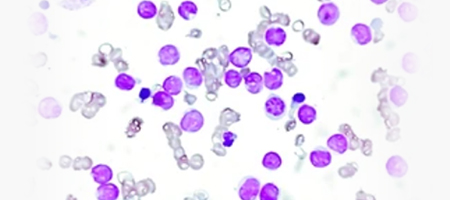Genome Screen
Premium checkup test analyzing genes that increase the risk of developing major diseases

Why should we get the Health Checkup genetic tests?
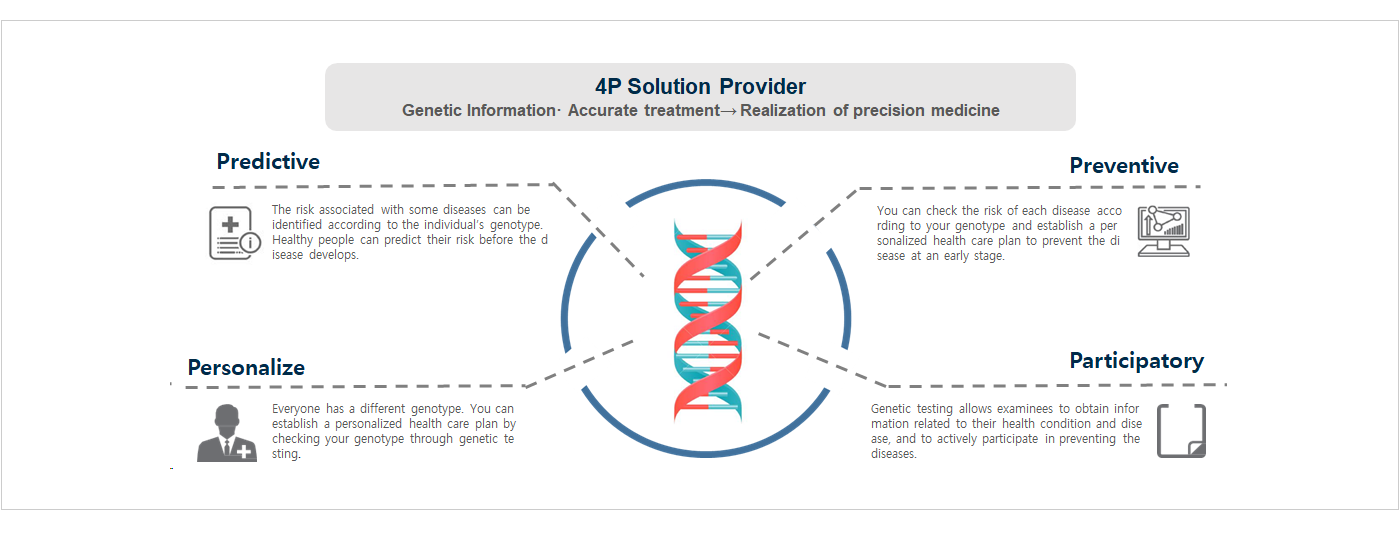
What is Genome Screen ?
- Genome Screen tests the whole region on the genes that are highly correlated to the disease. Since this test reports likely pathogenic variant and pathogenic variant, you could understand that the risk of developing disease does exist if some mutations are detected through this test.
- It is a premium test that analyzes representative genes related to the onset of diseases at once and provides customized medical guidelines according to the results.
Correlation between Gene-wide mutations and diseases
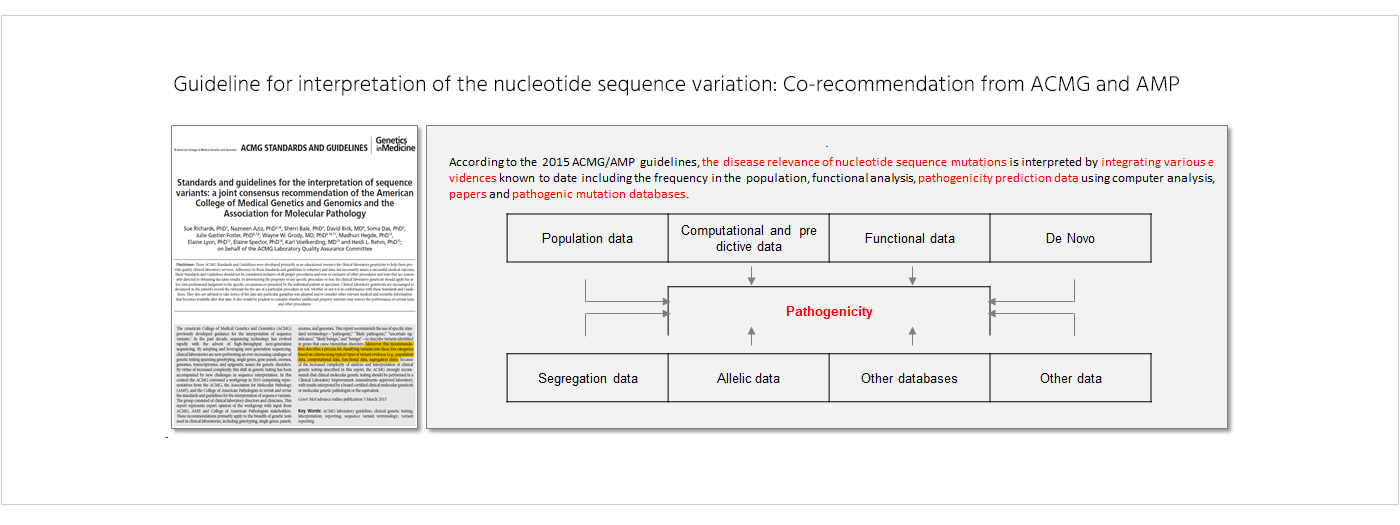
Pathogenicity classification
![[GBU]홈페이지 리뉴얼_콘텐츠 이미지4-48](https://gc-genome.com/wp-content/uploads/2023/09/GBU홈페이지-리뉴얼_콘텐츠-이미지4-48-1200x434.png)
Why should we take Genome Screen?
- Consisted of genes highly related to disease, and thus the risk of developing disease increases when the pathogenic variant is found
- It provides the rules of health checkup and monitoring method (follow up method) in case the positive result comes out
- It provides the guideline related to the family test that can be done for the examinee’s family
Who is Genome Screen recommended for?
Why should we take Genome Health?
- Genome Health differs from typical health checkups as it analyzes genetic factors that can make individuals susceptible to cancer and other common diseases, allowing for the identification of the possibility of disease occurrence.
- It provides a comprehensive assessment of disease risk levels, even with just once in a life, and offers guidelines for dietary and lifestyle habits based on those results.
Risk of Hereditary Diseases
The diseases that my children can inherit.
Genetic variants that influence diseases can be inherited by your children. By identifying genetic variations closely associated with disease onset, you can take preventive measures to protect your family from diseases.
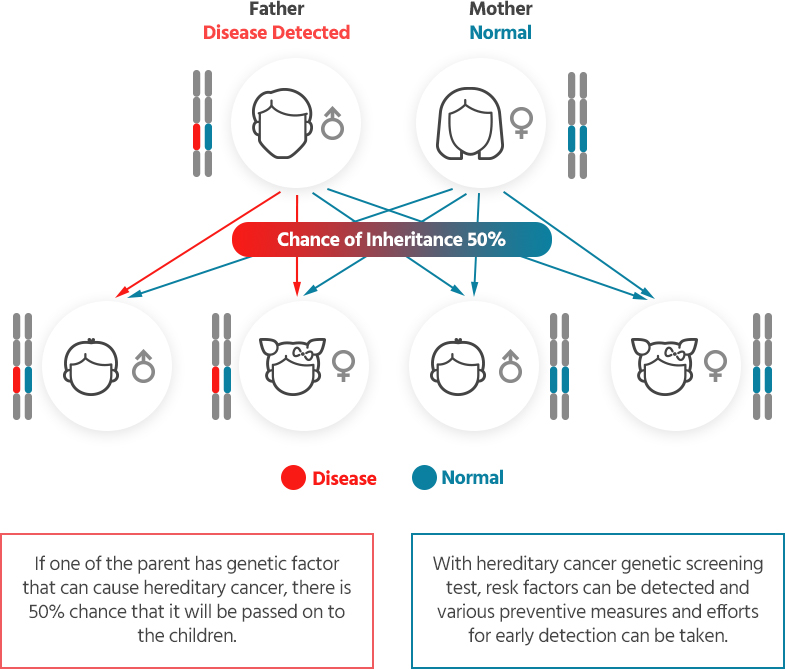
Risk of Cancer
Cancer, being the second leading cause of death in many countries, is a major health problem worldwide. About 5 to 10% of the cancer is caused by inherited genetic abnormalities. And these cancers are called Hereditary Cancers.
Different types of hereditary cancer has different genes associated, and one gene may cause various types of hereditary cancers.
People born with these genetic abnormalities have higher risk of getting cancer. However, with early screening, you can begin preventive treatments and lower the chance of cancer


Risk of Stroke
Stroke is a neurological damage caused by the blockage of blood flow in an artery within the brain (ischemic stroke), or the the blood vessel burst within the brain(hemorrhagic stroke). The key risk factors of stroke is hypertension, diabetes, hyperlipidemia, and there are various genetic factors that play roles as well.
If you have a family history or have cardiovascular disease, the risk of stroke is more than doubled and among individuals who have previously experienced a stroke, the recurrence rate within 10 years is approximately 40%.
Fortunately, with early awareness and prevention, it is possible to prevent stroke in over 90% of cases.
Risk of Hyperlipidemia
Hyperlipidemia or Dyslipidemia is when there is extra lipids such as cholesterol and triglycerides in the blood. It can cause the risk of complications such as atherosclerosis, stroke or heart attack increase.
The major risk factors known for hyperlipidemia is obesity, diabetes, drinking, smoking, and genetic factors also play a role.
Unfortunately, even people in their 20s and 30s cannot be complacent about hyperlipidemia (high cholesterol). It has been reported that even in young individuals, having hyperlipidemia increases the risk of death and complications by 1.7 times compared to those with normal cholesterol levels.
By checking the risk of hyperlipidemia in advance, prevent complications of cardiovascular diseases at an early stage.
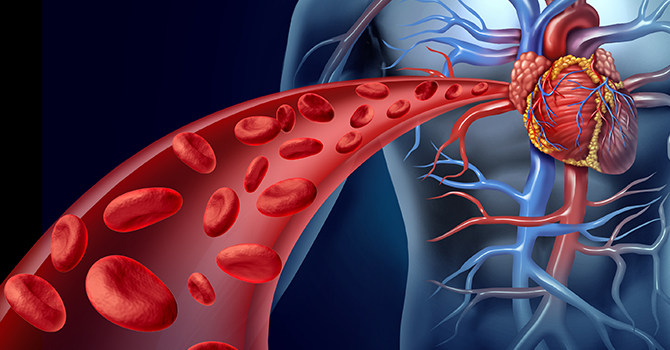

Risk of Sudden Cardiac Arrest
Did you know 90.3% of cardiac arrest patients die and only 8.7% survive? Sudden Cardiac Death (SCD) is a sudden death of seemingly healthy people within 1 hour onset of symptoms. The number of annual worldwide deaths from sudden cardiac arrest is approximately 4.25 million. And many of these cases are from hereditary heart disease or arrhythmia.
People with Pathogenic Variant in the genes associated with heart disease may suffer sudden death from arrhythmia, rupture of aorta etc. without no other prior symptoms.
The golden time for cardiac arrest patients is only 4 minutes, which is a very short moment. If everyone in the family knows in advance and prepares, it can be prevented.
Risk of Hereditary Diseases
Genome screen reports likely pathogenic variant and pathogenic variant which is found to be clearly associated with a disease

Why Genome screen for you ?
Genome Screen tests the whole region on the genes that are highly correlated to the disease.
Since this test reports likely pathogenic variant and pathogenic variant, you could understand that the risk of developing disease does exist if some mutations are detected through this test.It is a premium test that analyzes representative genes related to the onset of diseases at once and provides customized medical guidelines according to the results.




